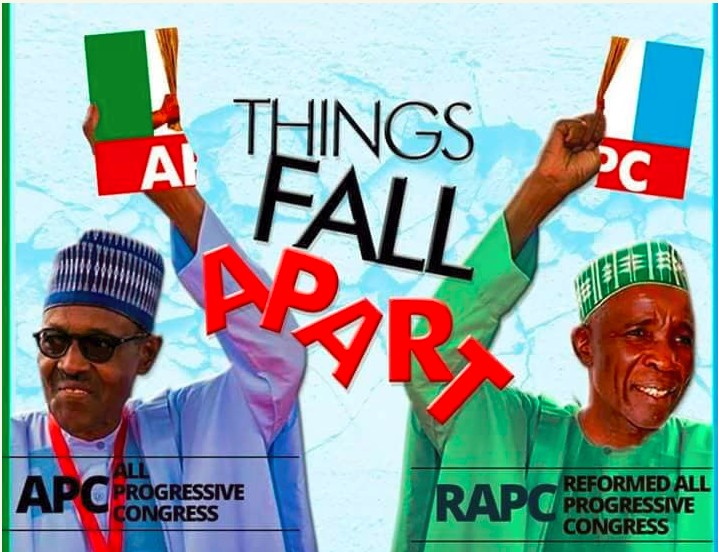
The All Progressives Congress, APC, has vowed to take a legal actions against the Reformed All Progressives Congress, R-APC, and its National Chairman, Alhaji Buba Galadima.
The legal adviser of the Adams Oshiomhole-led APC, Babatunde Ogala, disclosed this in a statement yesterday.
Ogala accused Galadima and other R-APC leaders of impersonation and also hinted about possible arrest of leading members of the group by security agencies.
The legal adviser stated that, “For the infringement so far committed by Mr Galadima and the odium he has brought upon the APC brand, we will be seeking civil redress against his person and that of his group.
“With respect to the criminal aspect of his conduct, we will be notifying the appropriate authorities to do the needful.”
The lawyer said that the press conference and statement issued by Galadima “were reminiscent of the televised military address issued after a successful execution of a coup d’état” which had become the order of the day before the return of democracy.”
Ogala accused the Galadima-led R-APC of resorting to self-help instead of seeking legal redress.
He noted that Galadima’s press release could be captured under three major issues , namely, “That the party’s convention was improperly conducted by the convention chairman as consensus candidates were only subjected to a ‘ yes’ vote in alleged contravention of Article 20 of the APC constitution.
“That a group of delegates have come together 10 days after the successful conduct of the APC
convention to, in their words , ‘take control and give legitimacy’ to APC now to be known as Reformed APC.
“That R-APC, whose congresses and convention date has yet to be disclosed, already has the full complement of national executives, national working committee, state executives and local government officials in all 774 local government areas across the country.
“The question of elections within the APC is covered by Article 20 of the APC Constitution. Specifically, Section 20 (1) provides that all party posts prescribed or implied by this constitution shall be filled by democratically conducted elections at the respective national convention or congress; subject where possible to consensus.”






